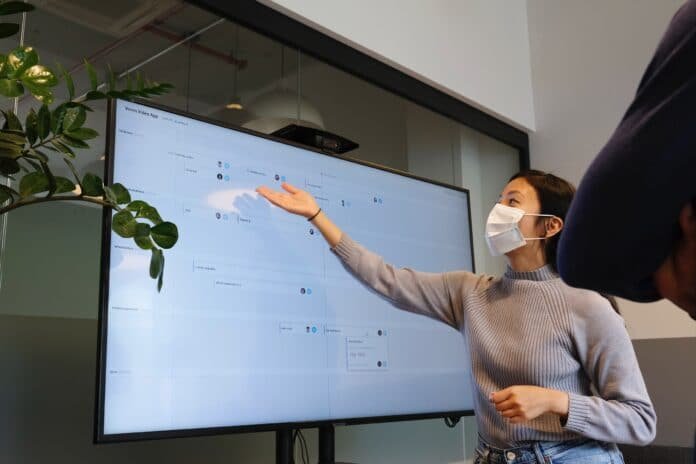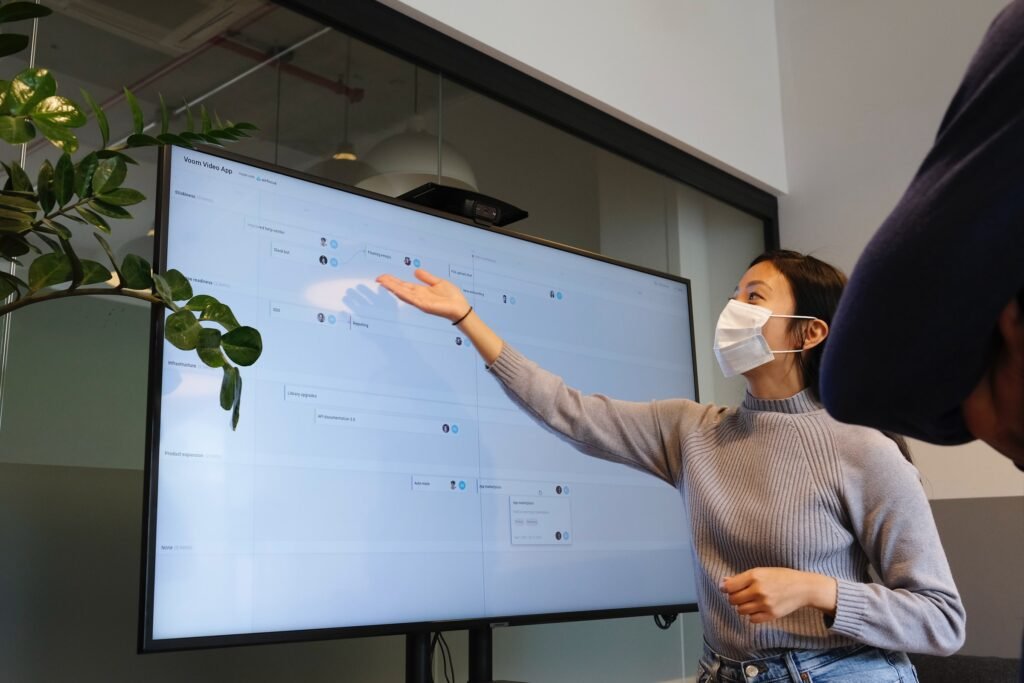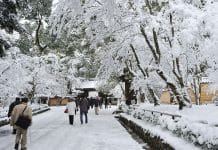
It is perhaps the question I get asked most often when responding to commenters on my various writings. How can I work in Japan? What kind of job can I do? jobs osaka
It is not an easy question to answer, though you will find plenty of shady characters online trying to sell you books that claim it is.
In principle, any job that a Japanese can do, a foreigner can do to, provided they have the requisite Japanese ability. However, in practical terms, especially in more populous areas such as Osaka, there are specific jobs for which foreigners find themselves most in demand.
Today we will look at some of the most readily available options to new arrivals in Japan. We will explore what you can expect from these types of jobs. Perhaps more importantly, we will also give a rundown of what these employers will expect of you.
Without further ado, here are 7 common employment options for foreigners in Osaka.
Table of Contents
English Teacher/Assistant Language Teacher Jobs

Let’s begin with the most obvious, and therefore most commonly available jobs for foreigners in Japan. English teaching is a wildly mixed bag. It depends on where you work, the type of company you work for, and the type of role you take on.
Until a few years ago, only “native” English speakers could apply for most English teaching jobs in Japan.
The immigration bureau defines a native English speaker as someone who has had at least 12 years of education in a school where the primary language was English.
However, in more recent times, employers have come to realize that, in many cases, non-native speakers of English actually make for better teachers when it comes to grammar and other fundamentals. To put it bluntly, they have a level of empathy with their students in this regard that it is simply impossible for a native speaker to have.
To that end, more and more teachers from places like The Philippines, Singapore, Hong Kong, and other parts of South East Asia continue to come to Japan in in search of teaching jobs each year.
You can read a more expansive, in-depth look at English teaching jobs specifically, here.
Of course, the biggest plus point for many about English teaching in Japan is that it requires almost zero Japanese language ability in most cases. However, there are other options too.
Copy Editing/Writing Jobs

This one can be a bit trickier to get started in, given the “closed shop” nature of many of the companies that operate therein. However, vacancies for copy editors, writers and proof-readers do come up fairly frequently.
Again, Japanese language is not necessarily a pre-requisite here. However, most companies in the field will look far more favorably upon candidates who do have some level of certified Japanese ability. More on that later.
In an era of cost-cutting across the media industry, many companies now look for their copy editors to double up as translators too. So, if you have some ability and experience in this area, it could also prove useful.
However, perhaps the biggest barrier to entry in this field is not the language requirements, but the level of necessary technical knowledge. The majority of publicly advertised editing/proofreading roles come from companies in the technical, manufacturing and medical sciences industries. As a result, you will find yourself dealing with a lot of jargon and terms unfamiliar to a regular writer. For this reason, many roles in this field also require the applicant to have at least a university degree or some work experience in the relevant field.
Overall, this is a tough nut to crack. However, the salary can be almost double that of an English teacher for the top earners. This is also one of the few industries in Japan where the transition to working from home has been relatively seamless.
Recruitment/Headhunting Jobs

Although the majority of these jobs are based in Tokyo, a number of the same firms operate branches in Osaka too. Osaka is, after all, the number 2 city in Japan when it comes to business and commerce. Only Tokyo is larger in this sense.
Over the last few years, many larger Japanese and multi-national firms have set up shop in Osaka. Rent and rates are cheaper than Tokyo, and it is, for the most part, significantly less crowded.
Of course, an increase in new businesses means fertile ground for recruitment firms.
I’ll be honest, I tried this line of work for a few months many years ago in Tokyo, and quickly decided it wasn’t for me. That doesn’t mean it couldn’t work out for you though.
Headhunting is a results driven business. The base salary offered is comparable to that of an English teacher. Where you make your real money is in placing candidates. This involves a lot of “cold-calling”. In other words, you will spend several hours per day on the phone to potential clients who won’t always be happy to hear from you. This can be very de-motivating.
However, if they are willing to meet with you, then you move on to the next phase.
The “FCM”
The First Candidate Meeting (FCM). The FCM serves dual purposes. On one hand, you want to sell your company and the opportunities on offer to the client, in the hopes they may switch from their current job. At the same time, you will also have to assess the candidate’s attitude, English ability, and whether or not they would be a “good fit” for any of the jobs you have available. It’s a tricky juggling act. However, most people who transition into this field of work either served as English teachers before, or in some other customer facing role. Presentation is crucial in this regard. You’ll need to be suited up and well turned out every day.
Typically you will cold-call during office hours and then conduct FCMs in the evenings. As a result, it is not unusual to work a 12 or 13 hour day. You will still have weekends off, but you’ll need them, because this is an exhausting and often thankless job.
However, for those with the motivation and the sheer stubborn will to succeed, the rewards can be huge. Just placing a few candidates each month can lead to a six figure annual salary in US dollar terms.
Again, as assessing clients’ English ability is part of the job, Japanese isn’t really necessary for this kind of work.
Catering and Hospitality Jobs

Before 2020, many would say that the one industry in Japan that is absolutely recession proof is travel and tourism. However, pandemics aside, the long term future of this industry is one of continued growth. Japan remains one of the most desired destinations for tourists each year.
Osaka, as a commercial and cultural hub, lies at the epicenter of this booming industry.
If the proposed Osaka Bay Casino project does eventually pan out, then the implications for hospitality workers in Osaka could be huge.
A whole new district of hotels, restaurants and nightlife will emerge, and there will be huge demand for foreign workers.
In this case, it won’t just be English speakers either. It’s a well-known fact that the most prolific gamblers in Asia are the Chinese. The meteoric rise of Macau as a gambling hub in the past 20 years is testament to that. Of course the Chinese language covers many countries in the region. So, this will create opportunities not just for workers from China, but also Taiwan, Hong Kong, Malaysia and others.
In the meantime, Osaka’s current glut of hotels and restaurants also has high demand for multi-lingual staff from a variety of countries. Unlike English teaching, catering and hospitality is a lot less fussy about who can do the job. If you have the visa and the capability then your qualifications don’t really matter all that much.
Japanese ability will certainly be a plus. However, as in other industries, this will vary dependent on the clientele that you serve. Osaka in particular draws high volumes of customers from Korea and China. So, some ability in those languages may be just as, if not more, important than your Japanese ability.
One downside however is the low salaries. Salaries for waiting, bar and hotel staff in Osaka are similar to those in places like the US and the UK. However, unlike those countries, Japan does not have a tipping culture.
So, the well-worn excuse from the manager that you can “make up for the low pay with your tips” doesn’t cut it at all in Osaka.
However, as in any industry, the salaries and conditions do improve as you move up the career ladder. Just be prepared for a long slog.
Factory Work/Laboring

Japan’s ongoing demographic problems are well-documented. Osaka is no different from all the other major cities in this regard. There are just too many old people, and not enough fit youngsters to carry out the more “hands-on” tasks.
As such, construction and assembly line manufacturing jobs now offer a new opportunity for relatively low-skilled foreign laborers.
The typical salary, unfortunately, is commensurate with the lower barriers to entry. However, the sink or swim nature of this kind of work is a great motivator for those looking to quickly acquire Japanese ability.
Additionally, many of these roles offer free accommodation alongside a salary. Rent is often one of the biggest outgoings for most new arrivals in Japan. So, whilst your gross earnings may be lower, you might well save more than you would in some white collar jobs.
Engineering and Tech Jobs

One of the big surprises many find when they arrive in Japan for the first time is that it is not as technologically advanced as many think. Fax machines are still a thing here!
However, in the last couple of years a number of Japanese companies have moved to modernize. However, many Japanese staff are rather stuck in their ways, and some outside help is needed to get things on track. Thanks to this, engineering and technical support vacancies are widespread across Osaka. Major industry leaders such as Panasonic, Sanyo, Mitsubishi and Sharp have a large presence in the city. They are in constant need of expert foreign talent to augment their local teams, as the drive to modernize continues.
Salaries are competitive too. An engineer with the required specialism can find themselves on a starting salary in excess of 75,000 US dollars per year.
One piece of advice though. If you are considering moving into the tech industry in Japan, then I would advise you to go for a multi-national company. Working under the less-flexible, traditional Japanese style of management can be both stifling and infuriating in equal measures. Before you sign up to work for a company, make sure that their vision for your future matches with your own.
Be an Entrepreneur

If we’re being honest, there’s a part of all of us that would love to be our own boss. Such an idea isn’t merely a pipedream in Osaka, it can become a reality.
The major roadblock you will face is funding. Unless you are a permanent resident, or married to a Japanese national, then getting financing from a bank will be difficult. It doesn’t matter how solid your business plan is.
However, that doesn’t mean it’s impossible. You’ll just need to be patient. Some businesses require little in terms of liquidity to start up. For example, your own English school, or some kind of import/export business for goods in and out of Japan. All you really need is a computer and an address.
However, if you are not on a spousal or permanent visa, then you will have to look at self-sponsorship for your business visa. This is a long, and rather fraught process. Again however, it is not insurmountable given time and energy.
So, there you have it. Seven suggestions for taking your first steps into the working world of Osaka.
Remember though that this is by no means an exhaustive list. There all kinds of opportunities out there.
All you have to do is look.

























